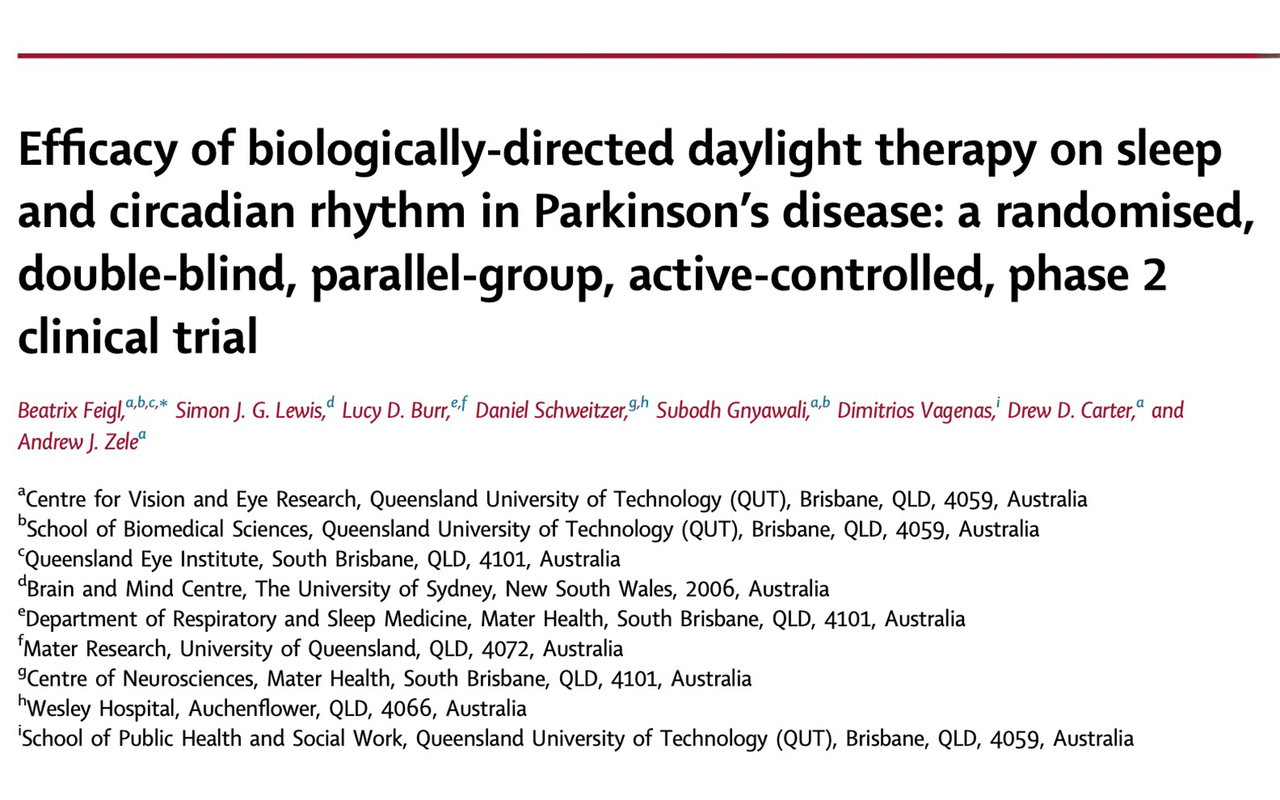Research
|
Feb 13, 2024
Revolutionary Daylight Therapy Study Offers New Hope for Parkinson's Patients: Enhancing Sleep and Circadian Rhythms
The study on the impact of daylight therapy on sleep and circadian rhythms in Parkinson's Disease (PD) patients is a collaborative effort led by researchers affiliated with Queensland University of Technology. The research was supported by various organizations, showcasing a concerted effort to explore innovative therapeutic options for PD. This study signifies an important step in understanding how controlled light exposure can potentially improve the quality of life for individuals with PD by enhancing sleep patterns and circadian regulation. Further details on the authors, affiliations, and supporters can be found in the published document.
The study investigates the efficacy of biologically-directed daylight therapy on improving sleep and circadian rhythm in Parkinson's disease (PD) patients. This randomized, double-blind, active-controlled trial at Queensland University of Technology involved mild to moderate PD participants receiving either daylight-mimicking therapy (Day Mel) or enhanced melanopsin-stimulating light (Enhanced Mel) for 30 minutes daily over four weeks. The therapies were personalized to individual chronotypes and monitored for environmental light exposure. The outcomes measured changes in sleep macrostructure and circadian phase biomarkers without significant differences between the groups. However, both interventions showed improvement in primary sleep structure and a phase-advance in circadian rhythm, suggesting potential benefits of controlled daylight therapy for sleep improvement in early to moderate PD. Further research is recommended to explore these findings using standardized approaches in advanced PD stages.
Full research study: https://doi.org/10.1016/j.eclinm.2024.102474
© 2024 Luger Research e.U. – Institute for Innovation & Technology

